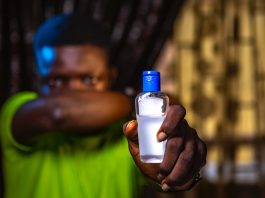Teams of scientists, doctors, engineers, students and professionals from Honoris United Universities, the first and largest pan-African network of private higher education institutions, have developed a prototype for a new non-invasive respirator, as well as face shields and splash protection masks, which can be affordably and quickly manufactured via 3D printing. The teams have also developed innovative testing and pharmaceutical interventions during a pan-African hackathon.

During this period of unprecedented strain on global healthcare systems, governments and hospitals are calling for solutions that will address the shortage of ventilators and other critical equipment to save lives during the pandemic.
In an act of solidarity, Université Centrale in Tunisia, a member institution of the Honoris network, has partnered with Digital Industry Tools Expert (DITEX), which brings together the expertise of Dassault Systems, Université de Lorraine in France and industrial engineering company TECH-3D. Together, the team has successfully produced a non-invasive ventilation system that can be made using commonly accessible and inexpensive components, making it affordable and easy to produce globally. A team of doctors from within the Honoris network including Chadli Dziri, MD, a leading surgeon and director of the Honoris Medical Simulation Center in Tunisia, and his colleague Dr. Mamoun Ben Cheikh, an anesthesiologist, also consulted on the design of the ventilator.
The ventilator design, which is an open-source software without patent, can be used by countries around the world. The non-invasive kit includes a protective face mask, 3D-printed, that connects to an electric insufflator – the body of which can also be 3D printed. Attached to the insufflator is an oxygen tank that delivers a predetermined, fixed concentration of oxygen.































![Financial Services Innovators [FSI] in collaboration with Startup Arewa Hosts AREWA FEMTECH FEST](/wp-content/uploads/2021/01/Financial-Services-Innovators-FSI-in-collaboration-with-Startup-Arewa-Hosts-AREWA-FEMTECH-FEST.png)











